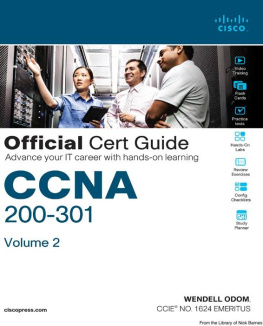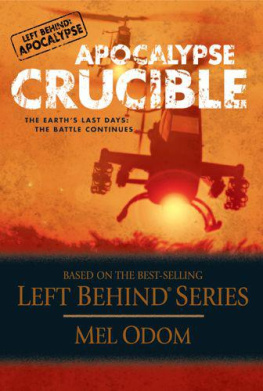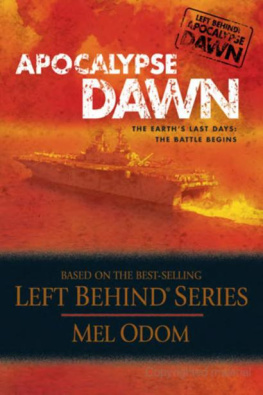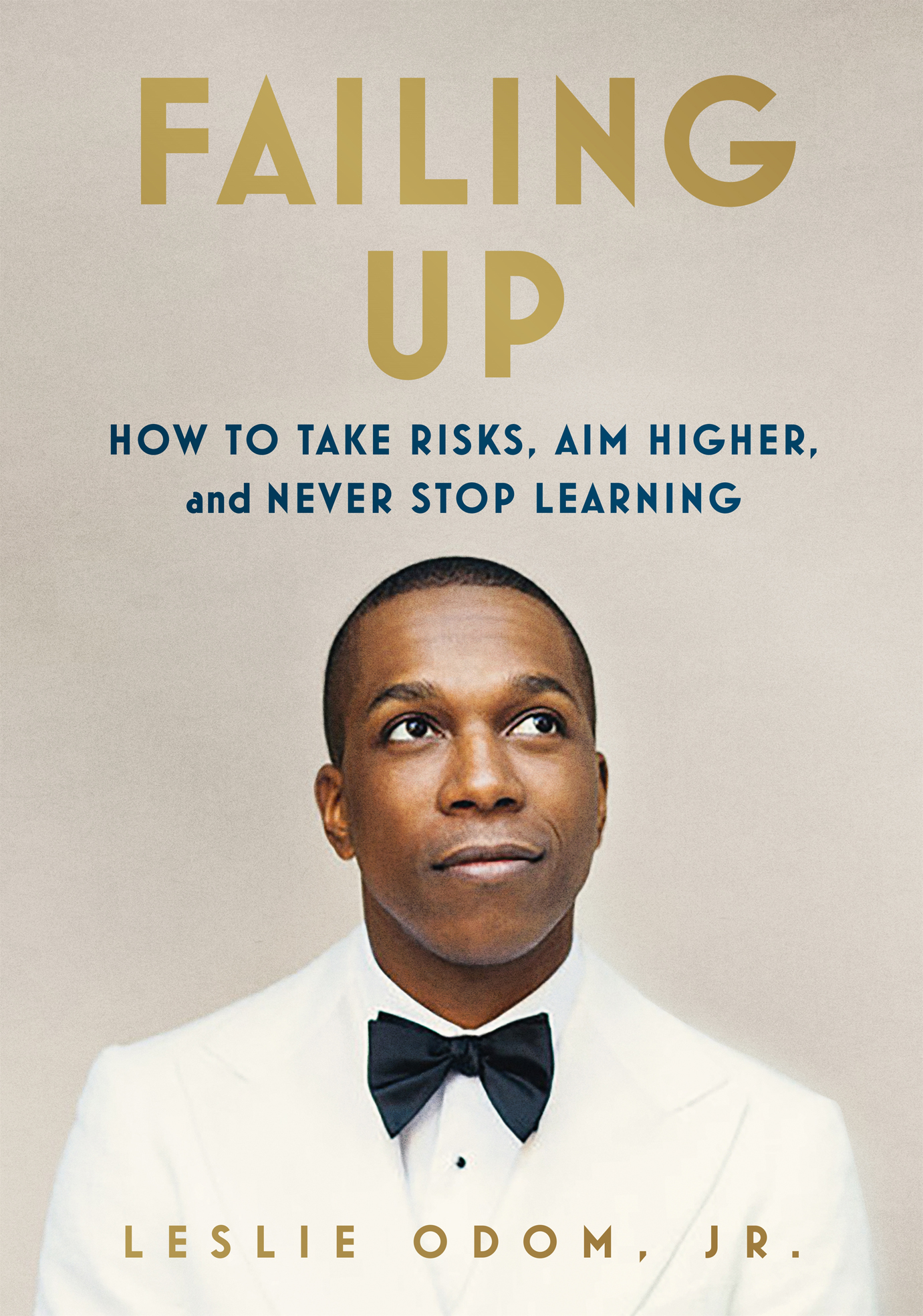Contents
Guide
Pagebreaks of the print version

The author and publisher have provided this e-book to you for your personal use only. You may not make this e-book publicly available in any way. Copyright infringement is against the law. If you believe the copy of this e-book you are reading infringes on the authors copyright, please notify the publisher at: us.macmillanusa.com/piracy.
FOR MY TEACHERS
Take me to the world thats real
Show me how its done.
S TEPHEN S ONDHEIM
from the teleplay Evening Primrose
Late one night in early 2016, some months before my final performance as Aaron Burr in Hamilton: An American Musical , I found myself alone in a darkened Richard Rodgers Theatre. I paused for a moment to take it all in.
For the next week, I would be on a beach in Mexico with my wife, Nicolette. An overdue and much-needed vacation.
After the curtain call, Id spent a while straightening up my dressing room. I packed a large box with some personal effects. I tried to leave things tidy for the new guy(s). Burr would belong to the understudies in the building for the next week. There were three. And they were ecstatic. Who could blame them? It was the role of a lifetime, and for the following seven days, it was all theirs.
My tiny dressing room had slowly accumulated piles of workout clothes, extra pairs of shoes, books, snacks, drawings, letters, and small gifts from fans. It was my home away from home. I did my best to thin it out in there. The new Burrs deserved a clean slate.
Angelo, the late-night doorman at the Rodgers, had just bounced.
Les, stay as long as you want, he told me. When you leave, make sure you dont forget anything. The door will lock behind you.
The Cancun flight was early in the a.m., but before I took off, I made a sharp right outside my dressing room, and followed the familiar path to the stage entrance.
Id never been completely alone in the theater before.
Looking out at the empty seats, I took a mental snapshotdoing my best not to forget anything.
For two years Hamilton had been such an enormous part of my life. The changes in the wake of the Broadway opening had been so seismic that sometimes there were nights like this one when I would spend a few moments trying to piece together understand how ?
Hamilton was the dream that almost didnt happen. Only five years prior to encountering Lin-Manuel Mirandas masterpiece, I had made the decision to move on from the business of being an actor.
HAMILTON was the DREAM that ALMOST DIDNT HAPPEN.
I found myself at one of lifes most common rites of passage, a graduation , and I knew from past experience that there would be things Id have to leave behind. Some things dont travel well from one time in your life to the next. Like broken-down rides and ratty furniturebad habits, toxic relationships, unhealthy thought patternsthere should be shedding around graduation day. The old stuff will only weigh you down.
On the threshold of a milestone birthday, I questioned whether I needed to lighten up.
Graduating into my thirties felt significant. The instability and unpredictability of the artists path was starting to feel like a childs way to live. Things may have been intensified by another rite of passage that I knew little about at the time. Theres a cosmic correlation that happens around the age of twenty-nine known to astrologers as the Saturn Return.
The slow-moving planet Saturn takes twenty-nine and a half years to complete its orbit around the sun and return to the exact same spot in the sky as it was on the day you were born.
The Saturn Return is notoriously disruptiveknown for upheaval and thrusting things taken for granted into question. Whether or not you believe in those influences (and I take it all with a few grains of salt) it makes sense that whenever you hit that natural cusp between your extended younger years and adulthood, you can expect uncertainty and apprehension with the onrush of big change.
I was taking stock of where I was at twenty-nine and seriously pondering the real possibility that if I didnt make some different choices, whos to say I wouldnt be in the exact same spot at thirty -nine? My chosen path offered so few assurances. Whos to say I wouldnt be in the exact same spot at FORTY -nine? Life on fast-forward had me circling the drain. Some paradigm-shifting advice from a mentor and practical application brought me from one of the saddest times in my life to a Broadway stage at (what felt like) the center of the theatrical universe for a time and wait what time is it?
Cancun. (!!!)
I stepped out of the Richard Rodgers Theatre and into the frigid New York City night air. The stage door dumps you into the alley behind the theater.
The big metal door slammed and locked behind me as my buddy Angelo promised.
A preview.
There was another graduation looming.
Only six months left of Hamilton on Broadway for me. There had been so much hard work to get here, and it was already halfway over.
You cant stay any one place forever. Box of personal effects in hand, I kept walking.
My apartment was a short fifteen-minute walk from work. It was along the trek that night that the first principles for the conversation at the heart of this book came to mind.
In part to keep warm, I got my legs moving as fast as my thoughts were that night.
Ive had a profound appreciation for the role of the mentor since elementary school. My fifth-grade social studies teacher was the first. As a kid with some behavioral issues, my story wouldve unfolded in a drastically different way without people who cared. Ive included some of the greatest lessons Ive learned at their instruction in the pages of this book.
Among the mentors wasand isa Los Angeles acting/life/empowerment coach, expert Boggle champ, and Renaissance man named Stuart K Robinson, a brilliant guy whose practical wisdom has changed many lives. And I swear Id say the same thing even if he hadnt let me marry his daughter.
In the throes of my Saturn Return crisis, I asked Stu if he had any time to talk. Hed helped people through career transitions before.
We met for food, and after listening thoughtfully to all the reasons why I had decided to leave the business (sick of this, tired of that, regular depression, tokenism, student loans, no money, add complaint here ), Stuart paused for a moment to make sure I was prepared to hear him.
I sat up in my seat. Ready to listen.
He began, Les, of course you can quit. Thats fine. And we can talk about what you might do next and how to go about it. I can support you in that. But Id love to see you try before you quit.
BUT ID LOVE to SEE YOU TRY BEFORE YOU QUIT.
Try? What did he mean, try?
As a working actor for over a decade, I had the wounds, calluses, and IMDb credits to show for it. When an opportunity presented itself youd be hard-pressed to find many people who tried harder. Stuart knew this and still he was looking at me and telling me he wanted me to try?
He said, You know how to succeed when the phone is ringing. But what about when the phones not ringing?
Stu went on, What did you do for yourself today? Did you call anyone? In what ways did you take charge of your creative life today? Did you send an e-mail to someone who might be working on something you care about? Did you read anything? Did you write anything? Did you take a class? Did you practice? What step forward did you take for yourself today in the absence of the ringing phone?







